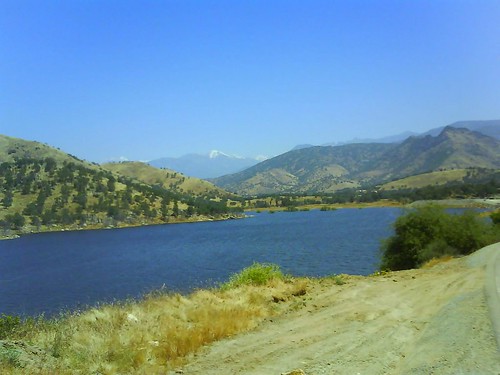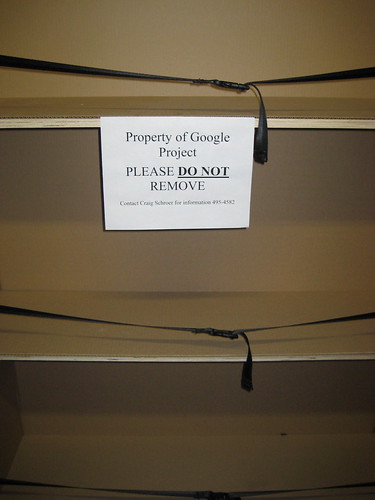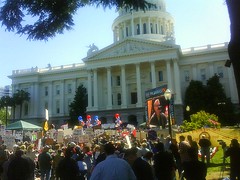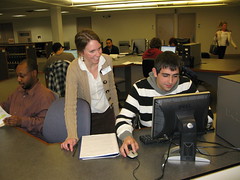 I attended the library's 9th annual literacy conference in beautiful Three Rivers, California. I had the honor of speaking to them before the event where I focused on the importance of their work in our economic recovery.
I attended the library's 9th annual literacy conference in beautiful Three Rivers, California. I had the honor of speaking to them before the event where I focused on the importance of their work in our economic recovery.I referenced a recent Washington Post article that compares two rural communities and their broadband success. One was more successful than the other because their community was more affluent, the population had a higher education, and there was a workforce development program already there.
Rural Riddle: Do Jobs Follow Broadband Access?
Two Hamlets That Got High-Speed Lines Show Wildly Different Results
http://www.washingtonpost.com/wp-dyn/content/article/2009/04/22/AR2009042203637.html
"And the education gap cannot be dismissed", said John Horrigan, Director of the Pew Internet & American Life Project.
"It's Economic Development 101 to try to improve the supply of infrastructure to make a locality more attractive for businesses, but you do need a skilled workforce to fully exploit that," Horrigan said. "In rural America, for broadband adoption, skills and relevance still remain a barrier."
Even further explained by this Federal Communications Commission (FCC) report on rural broadband access:
Bringing Broadband to Rural America: Report on a Rural Broadband Strategy FCC
"Stimulating and Sustaining Demand for Broadband. Various factors may affect demand for broadband services in rural areas, including a lack of knowledge regarding the benefits of Internet access, lack of training on how to use a computer, socioeconomic and demographic factors, and affordability. To help stimulate and sustain demand for broadband services in rural areas, both public and private entities should consider developing consumer education and training initiatives, broadband affordability programs, and other incentives to achieve sustainable penetration rates."So the key to any economic recovery, even if the library were to receive a broadband grant, isn't just fast internet access, but a skilled workforce. Without the literacy program, any other efforts wouldn't be as productive.
Literacy Issues and Stopping Short
There were great insightful discussions at the conference. Some great topics were:
The lack of diversity among tutors.
In some cases, adult literacy has focused too much on English Acquisition for Spanish Speakers instead of just general literacy.
The literacy center can deter students that have basic skills, but still need improvement.
In many cases, there is a frustration that the student only goes so far. They get to a level that they want to get a job, but no further. It's the problem of good enough.
"Literacy will be useful for the rest of their lives. Not just enough to get a job, or get what you want, but you can enjoy reading, writing, and an informed mind. Too many stop short, how can we change that?"
The best story: A woman wanted to learn how to speak English. Her children could do it. It took months of tutoring and help. One day, she was paying for her groceries when the check-out girl was wondering about how to make a Mexican dish. The student was able to tell her how to do it in English. When she walked out of the store, her six year old son said "Mommy, I'm so proud of you."
There is more information on Literacy from a May 2009 report:
Basic Reading Skills and the Literacy of the America's Least Literate Adults
There was a great open forum where tutors, students, and literacy leaders discussed issues. There are some fantastic comments about leadership and how to make changes in communities.
"Leaders are doers. You see a need and you do something about it. You don't complain, you don't wait for someone else, it's about making it happen."
 Image by Newton Free Library via Flickr
Image by Newton Free Library via Flickr
What it takes to be a tutor
It doesn't take much knowledge to be a tutor. Many of the tutors remarked that they didn't feel they could help the program because they didn't have a college degree. In the end, if you know how to read, you can help someone else learn to read. It's that simple. It's not the skills to teach, you just need to be patient and willing to help.
Anyone can find a literacy program near them by going here. In California, volunteers can also find programs nearest them by going here.


![Reblog this post [with Zemanta]](http://img.zemanta.com/reblog_e.png?x-id=940722a0-9460-413e-aecf-166bf76a91c8)







